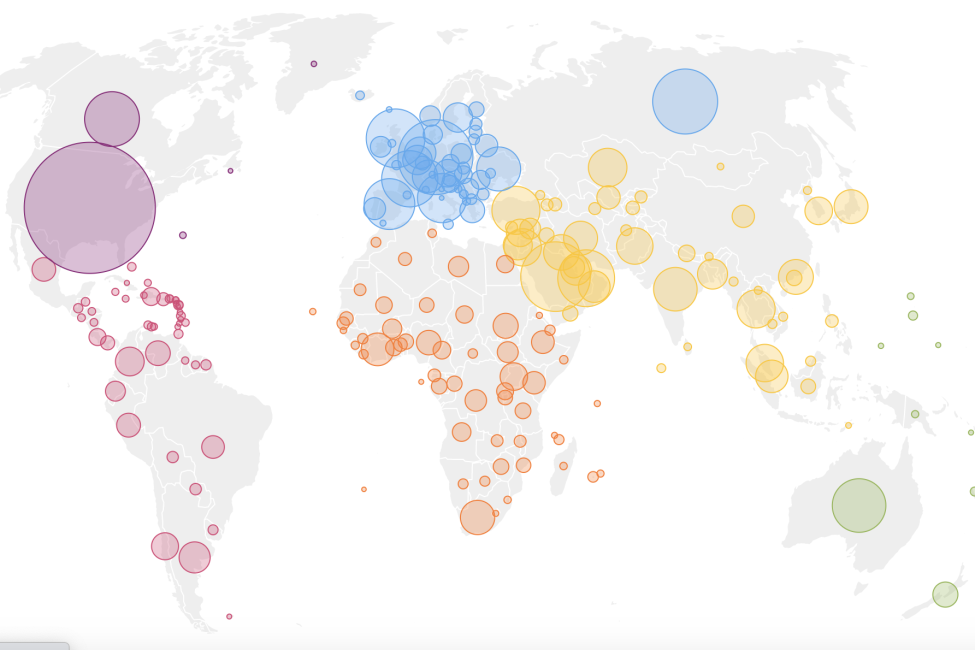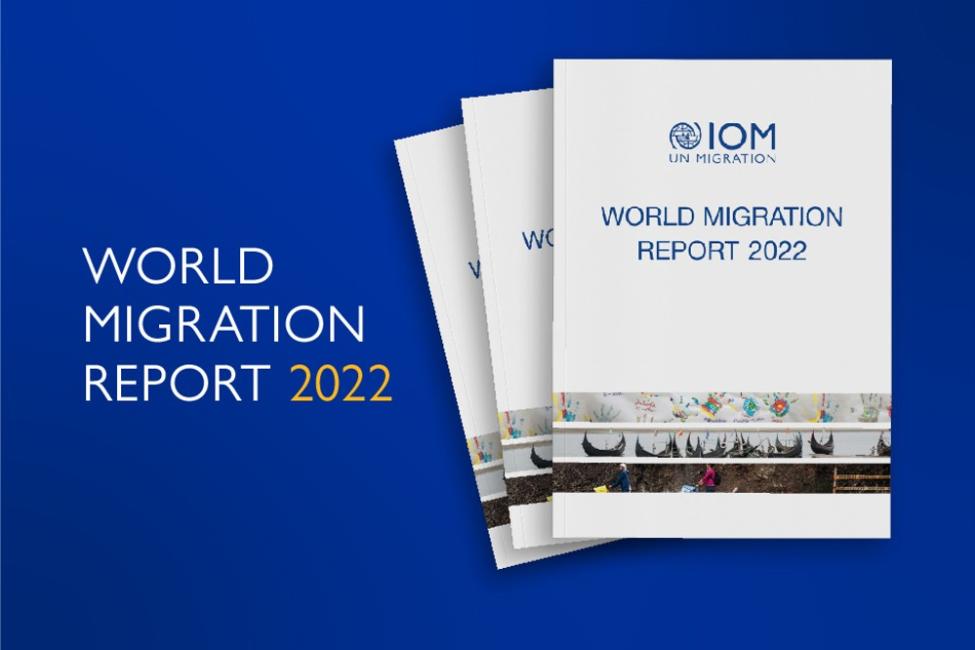-
Who we are
WHO WE AREThe International Organization for Migration (IOM) is part of the United Nations System as the leading inter-governmental organization promoting since 1951 humane and orderly migration for the benefit of all, with 175 member states and a presence in 171 countries.
-
Our Work
Our WorkAs the leading inter-governmental organization promoting since 1951 humane and orderly migration, IOM plays a key role to support the achievement of the 2030 Agenda through different areas of intervention that connect both humanitarian assistance and sustainable development.
What We Do
What We Do
Partnerships
Partnerships
- Where we work
-
Take Action
Take Action
Work with us
Work with us
Get involved
Get involved
- Data and Research
- 2030 Agenda
IOM's World Migration Report Shows Global Displacement Rising Despite COVID-19 Mobility Limits
Geneva – The International Organization for Migration (IOM) today launched its flagship World Migration Report 2022 which reveals a dramatic increase in internal displacement due to disasters, conflict and violence at a time when global mobility ground to a halt due to COVID-19 travel restrictions.
"We are witnessing a paradox not seen before in human history,” said IOM's Director General António Vitorino. “While billions of people have been effectively grounded by COVID-19, tens of millions of others have been displaced within their own countries.”
The number of air passengers globally dropped 60 per cent in 2020 to 1.8 billion (down from 4.5 billion in 2019) while at the same time internal displacement due to disaster, conflict and violence rose to 40.5 million (up from 31.5 million in 2019).
The report, the eleventh in IOM’s World Migration Report series, draws upon the latest data from around the world to explain key migration trends as well as issues that are emerging on the migration policy horizon.
"This report is unlike any other edition of the World Migration Report,” said the IOM report editor Marie McAuliffe.
“So much has happened in migration and mobility over these last two years and in this report we bring together key data, research and analysis to show how long-term trends have been altered by COVID-19 and how migrants worldwide have been affected."
According to the report, the number of international migrants has grown from 84 million globally in 1970 to 281 million in 2020, although when global population growth is factored in, the proportion of international migrants has only inched up from 2.3 per cent to 3.6 per cent of the world’s population. Most people globally (96.4 per cent) reside in the country in which they were born. The number of international migrants for 2020 was lower, by around 2 million, than it otherwise would have been due to COVID-19.
The World Migration Report now has an expanded array of report materials for a digital age. The online interactive platform allows users to explore and interact with key data in a highly visual and engaging way. The 2020 edition won gold in the 2021 International Annual Report Design Awards earlier this year.
The online educators’ toolkit has been developed to support teachers around the world as they seek to provide balanced, accurate and interesting learning materials on the fundamentals of migration and migrants for teenagers and young adults.
The World Migration Report has become a key source for fact-checkers, helping to refute false news on migration in a wide variety of places. The 2022 edition now has a new and simple fact-checkers' toolkit to help bust key myths on migration.
In addition to data analysis, the report covers specific topics for those readers needing more in-depth content. Topics covered include migration and slow-onset climate change; peace and development links to migration; human trafficking in migration pathways; COVID-19 impacts; disinformation about migration; migrants’ contributions in an era of disinformation; and artificial intelligence and migration, which are timely and highly relevant for both specialist and general audiences.
The report can be downloaded here.
***
For more information, please contact:
Marie McAuliffe, World Migration Report Editor, IOM HQ, Tel: +41796599940, Email: mmcauliffe@iom.int
Paul Dillon, Managing Editor and Spokesperson, IOM HQ, Tel +41796369874, Email: pdillon@iom.int.
Safa Msehli, Spokesperson, IOM HQ, Tel: +41794035526, Email: smsehli@iom.int



